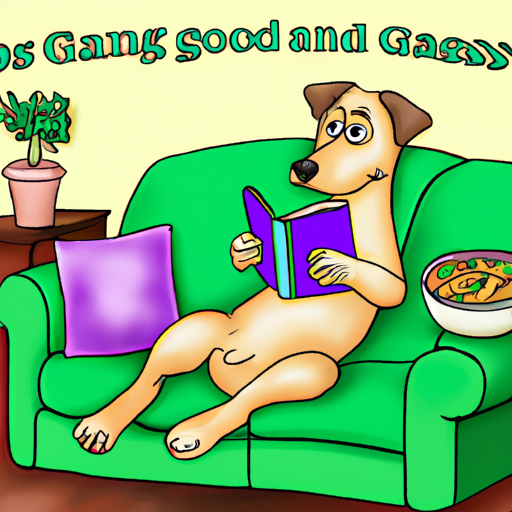As a loving and dedicated caregiver for your furry friend, you undoubtedly want to understand all aspects of your pet’s health, including those that might seem trivial or amusing, like gas. Let’s dive into this often misunderstood area of canine health.
The Culprits Behind Canine Gas
First and foremost, it’s important to understand that occasional flatulence is completely normal in dogs, just as it is in humans. However, excessive and regular gas could be a sign of some underlying health issues.
-
Diet: Just like humans, dogs can have adverse reactions to certain foods that can result in gas. Foods rich in carbohydrates, such as beans, peas, and soybeans, are common culprits.
-
Eating Habits: If your dog tends to eat too quickly, they might swallow air, which can lead to gas.
-
Intolerance or Allergies: Some dogs might be intolerant or allergic to certain ingredients in their food, which can cause gas.
-
Medical Conditions: Certain medical conditions, such as pancreatitis, intestinal parasites, or inflammatory bowel disease, can cause excessive gas in dogs.
-
Old Age: Just like humans, as dogs age, their digestive systems can become less efficient, leading to increased gas.
The Importance of Diet in Preventing Dog Gas
Diet plays a crucial role in managing and preventing excessive gas in dogs. A balanced diet that is high in protein and low in fat can help to prevent gas. Avoid feeding your dog foods that are known to cause gas, such as beans, peas, and certain dairy products.
Also, consider switching to a grain-free diet, as some dogs can have difficulty digesting grains, which can lead to gas.
| Foods to Avoid | Foods to Include |
|---|---|
| Beans | Lean meats |
| Dairy products | Whole grains |
| Fatty foods | Fruits and vegetables |
| Spicy foods | Probiotics |
How to Mitigate Canine Gas
Here are some strategies that you can employ to help mitigate your dog’s gas:
-
Slow Down Eating: Use a slow-feeder bowl to discourage fast eating, which can lead to swallowed air and subsequent gas.
-
Regular Exercise: Regular exercise can help stimulate digestion and reduce gas.
-
Probiotics: Probiotics can help to balance the bacteria in your dog’s gut, reducing gas.
-
Regular Vet Visits: Regular vet visits can help catch any underlying health conditions that might be causing your dog’s gas.
When to Seek Veterinary Assistance
While occasional gas is normal, if your dog’s gas is persistent, accompanied by other symptoms such as vomiting, diarrhea, loss of appetite or weight, it’s time to seek veterinary assistance. These could be signs of a more serious underlying condition that needs to be addressed.
Frequently Asked Questions
Q: How often is it normal for a dog to pass gas?
A: Occasional gas is completely normal in dogs. However, if it’s happening multiple times a day, every day, it might be a sign of a problem.
Q: Can dog gas be a sign of a serious health problem?
A: While gas itself is not dangerous, excessive and persistent gas, especially when accompanied by other symptoms, could be a sign of a more serious health problem.
Q: Can changes in diet help with dog gas?
A: Absolutely! Adjusting your dog’s diet to include more lean proteins and fewer carbohydrates can significantly reduce gas.
Q: Should I be worried if my dog’s gas has a strong smell?
A: While unpleasant, a strong smell alone is not usually a cause for concern. However, if it’s accompanied by other symptoms or changes in your dog’s behavior, it’s a good idea to consult with a vet.
In conclusion, while your dog’s gas might be a source of amusement (or discomfort!), it’s an important aspect of their health that deserves attention. By being proactive and mindful, you can help keep your dog’s digestive system healthy and happy.



